Different IT infrastructure monitoring tools are designed to offer visibility into particular aspects of your overall IT system, including applications, servers, logs, and more. The overall quality of these tools can vary, from excellent products built for business use to more limited open-source software. Their alerting capabilities vary as well, with tools offering a range of options for configuration and customization.
If you’re looking for a comprehensive alerting tool, there’s a feature you should take into consideration. Given the many available channels for communication, which software offers the best alerting integrations? Communication platforms continue to increase in popularity, with many people utilizing several communication channels at once, meaning the market for IT infrastructure alerting tools is constantly evolving to keep pace. For instance, Slack is known as the fastest growing business app, being used by 43% of Fortune 100 companies—and a monitoring software that can send alerts to Slack may have an edge.
System administrators should make sure they’re benefiting from an IT infrastructure monitoring program that offers an up-to-date and robust alerting system. To help you decide which solution is best suited to your needs, here are some infrastructure and application monitoring tools that top the list for effective alerting:
1. AppOptics
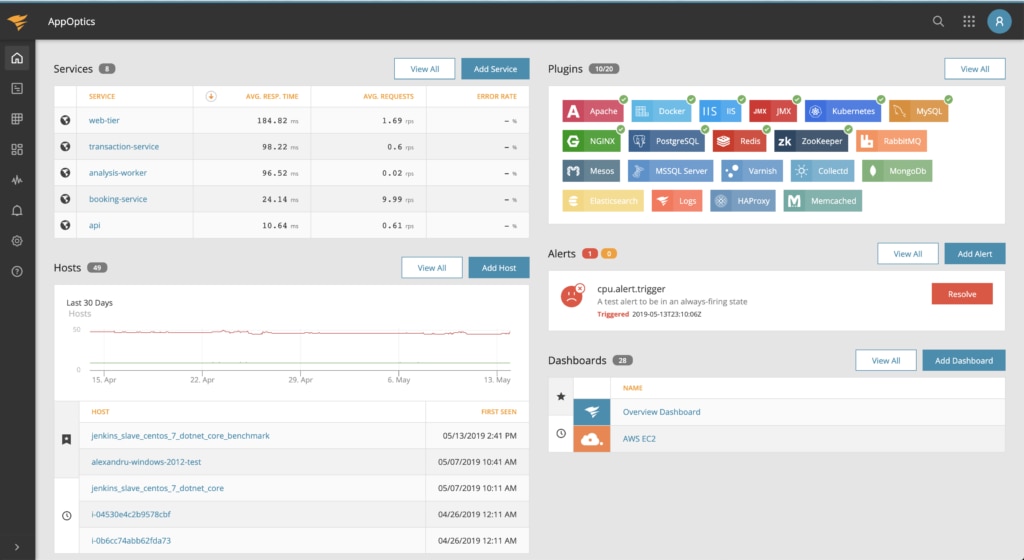
SolarWinds® AppOptics™ is a server and infrastructure monitoring software offering detailed insights into the performance of your infrastructure and applications. This software includes an Alerts Central dashboard, where you can customize alerts in several ways. Decide if you would like to alert on hosts, service health metrics, or custom metrics, then define alert conditions. You can set composite or independent alert triggers for more pinpointed notifications.
The dashboard also allows you to choose the alert’s name, add a description, then define rearm time and runbook URL. The rearm time feature lets you specify how much time should pass before the alert can be triggered again. The runbook URL feature allows you to define and attach the actionable steps to take if the alarm is triggered.
Once customized, you can configure notifications to deliver to any number of services, including:
• Slack
• Email
• Flowdock
• PagerDuty
• Zapier
• VictorOps
• Other Webhook-compatible services
2. Pingdom
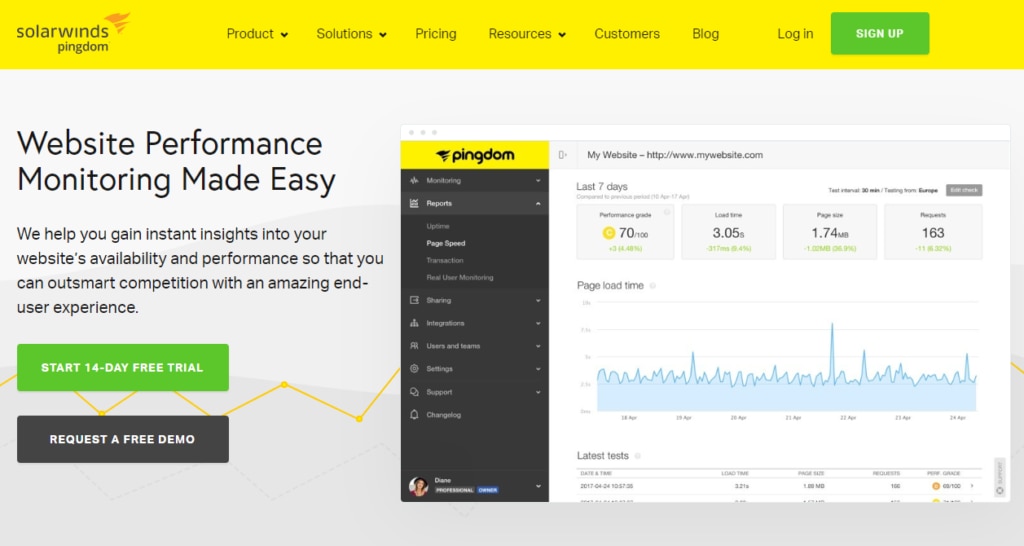
SolarWinds Pingdom® is a website performance monitoring program with uptime checks and alerts that allow you to monitor site availability on a continual basis. To ensure accuracy for uptime checks, Pingdom performs second checks on incidents to filter out false positives. Alerts can be sent to multiple users, including individuals or teams. Pingdom can send alerts in the following ways:
• SMS
• Email
• Push notifications to your mobile device
• Other app integrations
The Pingdom alerting system lets you set the thresholds and parameters which determine when and why an alarm is triggered. For instance, you can set the level of severity for particular conditions, or choose to delay alerts by any interval up to an hour. It’s also possible to define how often Pingdom should resend an alert over the course of an outage, and choose whether you’d like to be alerted once the server is back up and running.
3. Loggly
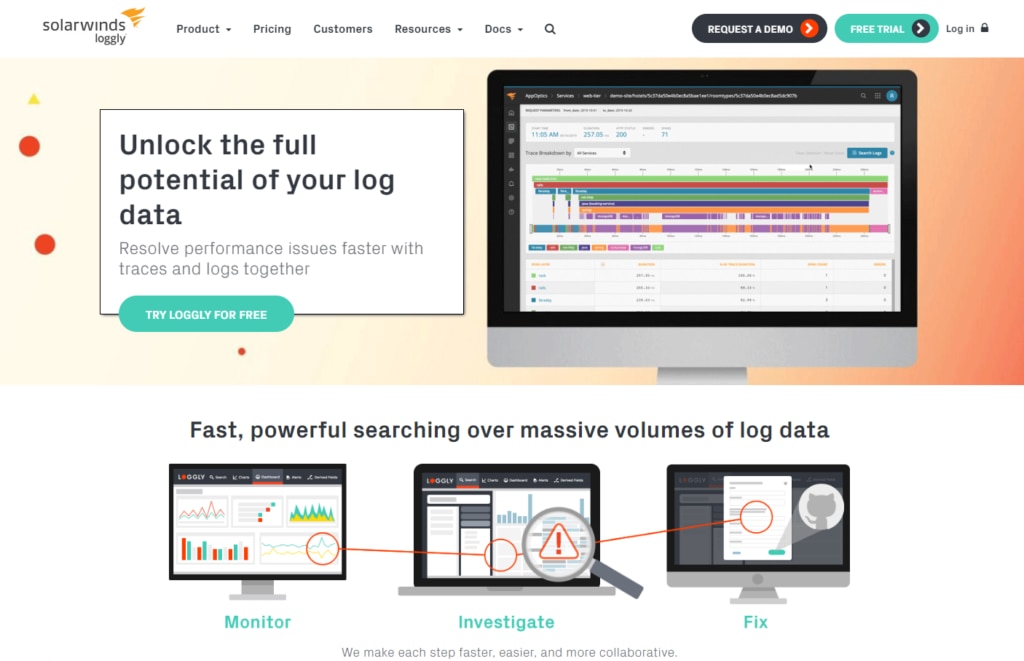
Loggly is a cloud-based log analysis and monitoring tool that offers flexible alerting. Avoid manually searching log data and create alerts that can flag specific events for you. Define alerts based on events (or lack of events), then set saved searches to run on a schedule of your choice. The alert functionalities of Loggly allow you to be notified in several ways, including:
• HipChat
• PagerDuty
• Slack
• GitHub
• VictorOps
• OpsGenie
• Email
• HTTP/S POST or GET
• Alert Birds
• Other webhook-compatible services
You can also customize alerts to have multiple endpoints. This means you can have alerts sent to more than one platform (for example, Slack, PagerDuty, and HipChat) without having to set up a new alert.
4. Cabot
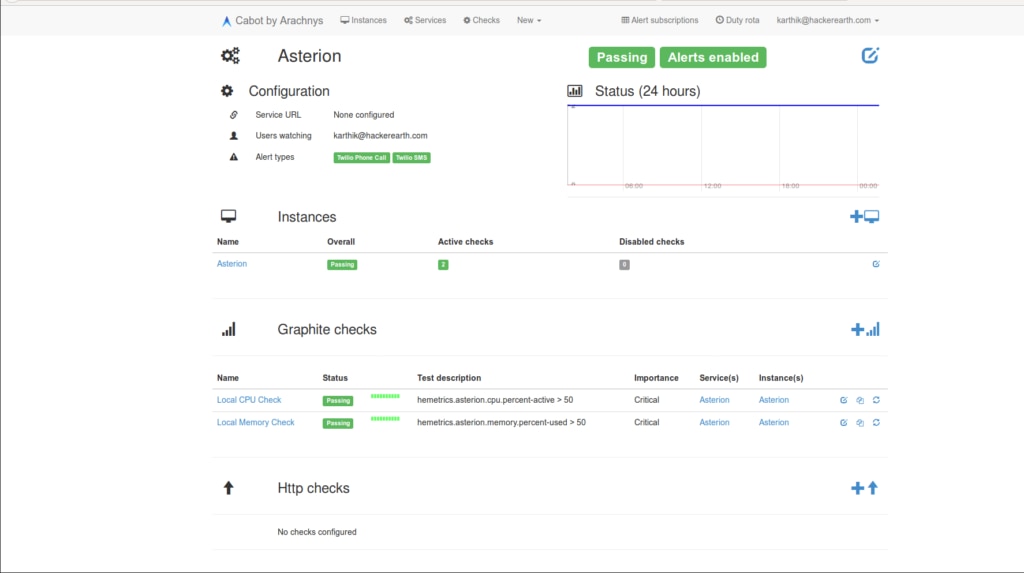
Cabot offers alerts for infrastructure monitoring via a Python-written program. It’s a self-hosted watchdog with a range of monitoring features, including the ability to conduct Graphite, Jenkins, and HTTP checks. As a Java-independent program, it can consume less memory. The Cabot out-of-the-box alerting functionalities include:
• SMS
• Email
• Phone
• HipChat
• Slack
•
The program’s plugin architecture allows other alerting channels to be leveraged as well. Alerts are classified into three categories—notifications, alerts, and telephone alerts—allowing users to configure specific notifications according to how intrusive they want the alert to be.
5. Open Distro for Elasticsearch
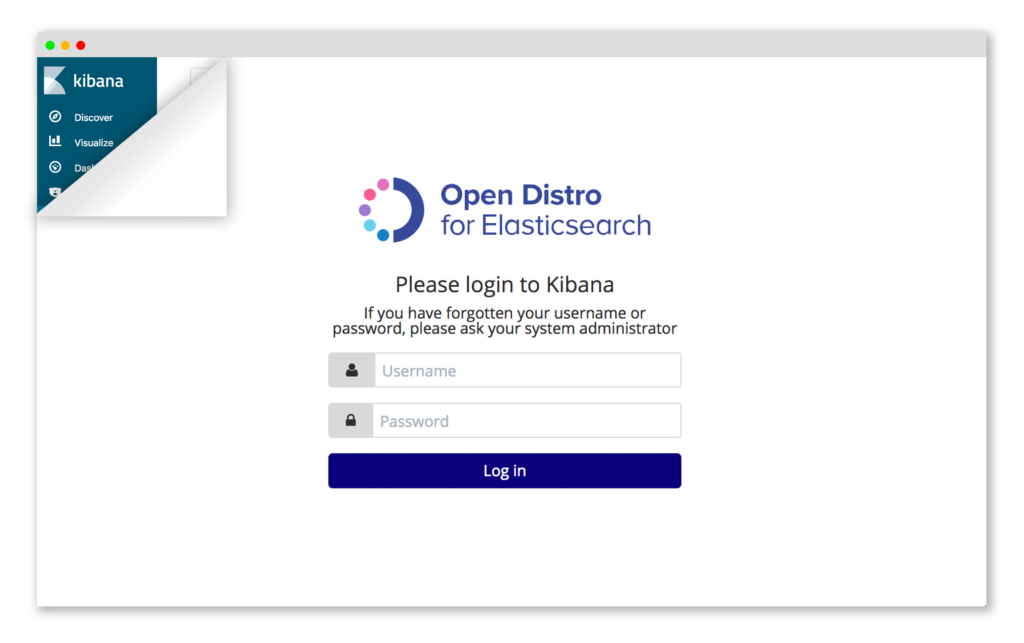
Open Distro for Elasticsearch is a tool specifically designed for Elasticsearch log analytics monitoring. It’s an open-source, community-driven program with sophisticated security features, including multiple authentication options and advanced compliance utilities. The alerting system for Open Distro has a Kibana interface and harnesses the scripting capacity and full query language of Elasticsearch to let users create specific alert parameters. Open Distro for Elasticsearch has built-in alerting integrations for:
• Slack
• Other webhook-compatible services
Alerts can be formatted with Mustache, which allows you to embed the notifications with instructions on how to respond.
6. Nagios
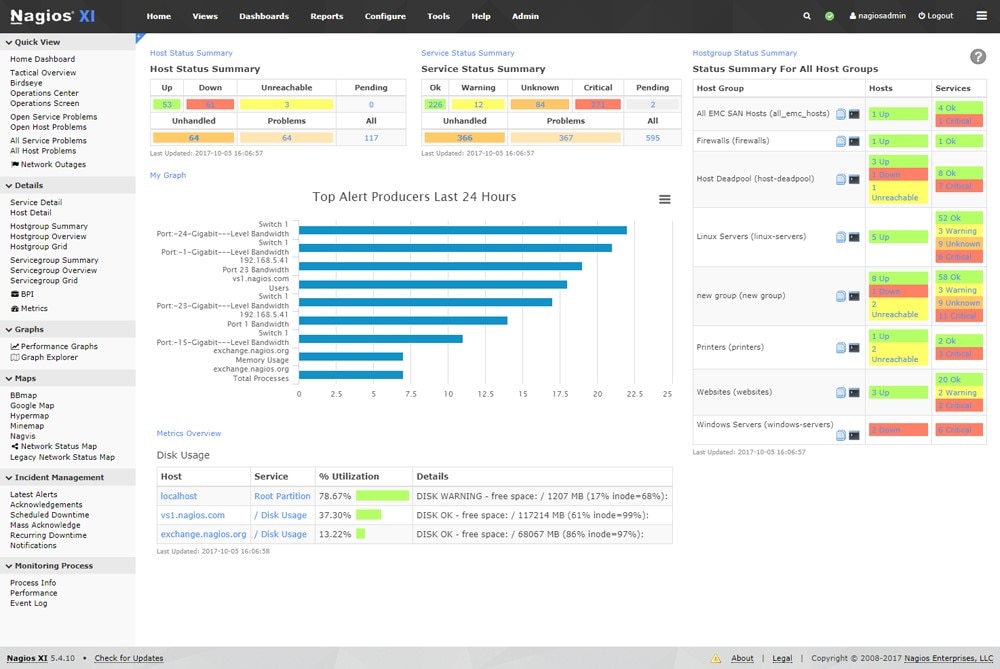
Nagios offers infrastructure monitoring and application monitoring services for Windows, Linux and UNIX applications. It’s a free, open-source program with alerting utilities best-suited to users who know how to use command-line programs. Overall, Nagios’ alerts system is simple but functional.
The Nagios notification system allows you to be alerted via many different channels. You have to configure this function yourself, but then anything that can be executed via the command line can be customized for use as an alert or notification command. Here are a few potential notification platforms that are compatible with Nagios:
• Pager
• SMS
• WinPopup Message
• Audio alerts
• MSN instant messenger
• Yahoo instant messenger
7. NgDesk
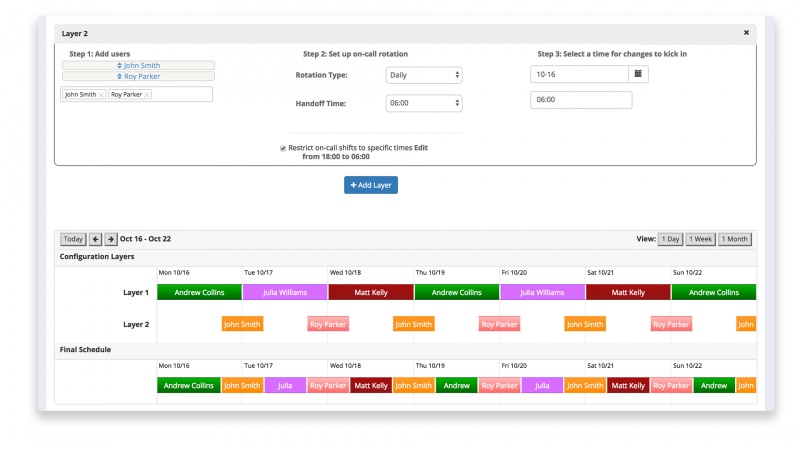
NgDesk is built for cloud-based customer support monitoring. This free software focuses on delivering ticket management and alerting on incidents. Alerts for updates, changes, or new tickets can be delivered via:
• Phone
• Email
• SMS
• Push notifications
Escalation procedures are in place so alerts go through the right people, helping ensure prompt resolution of the ticket.


